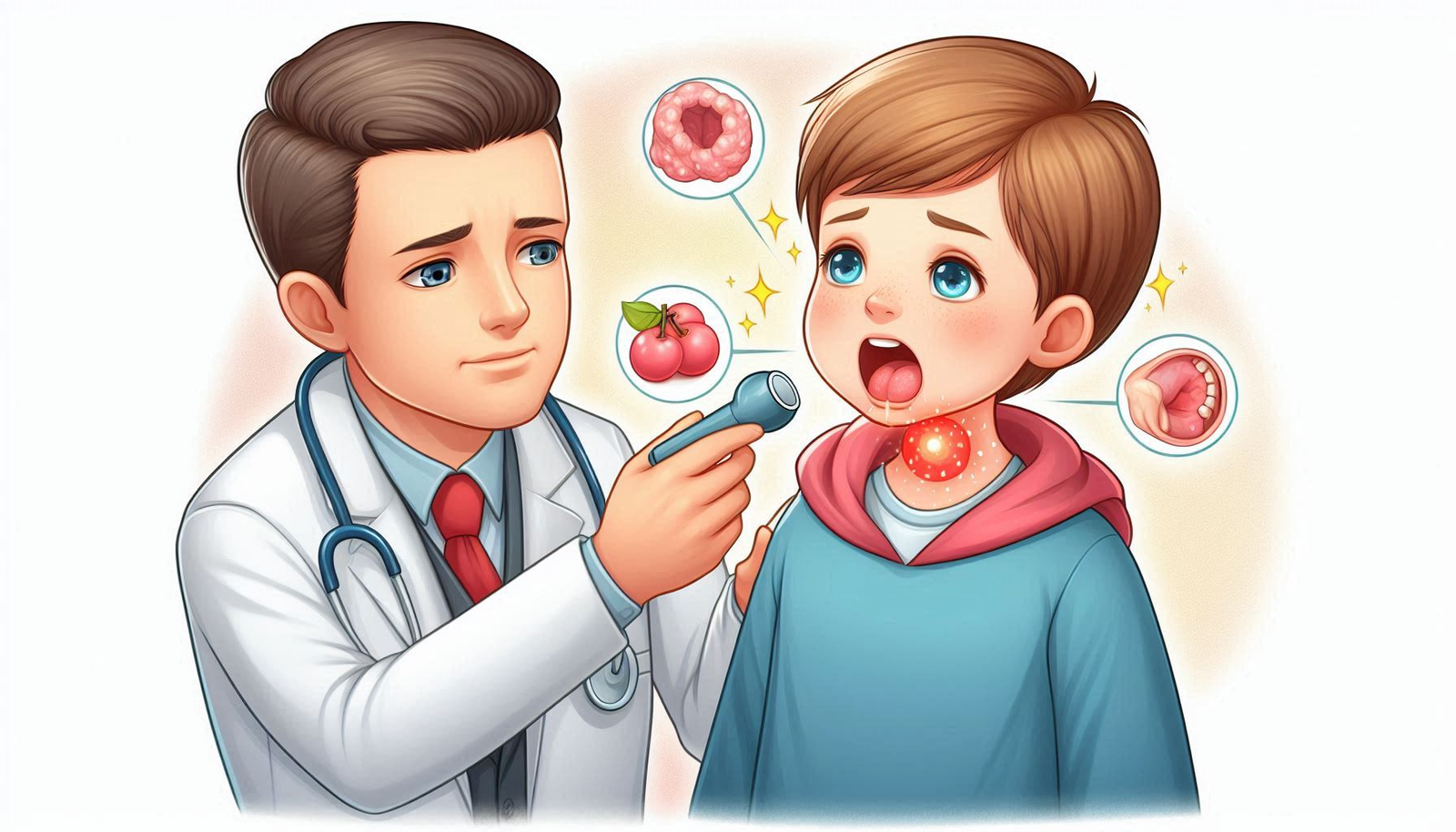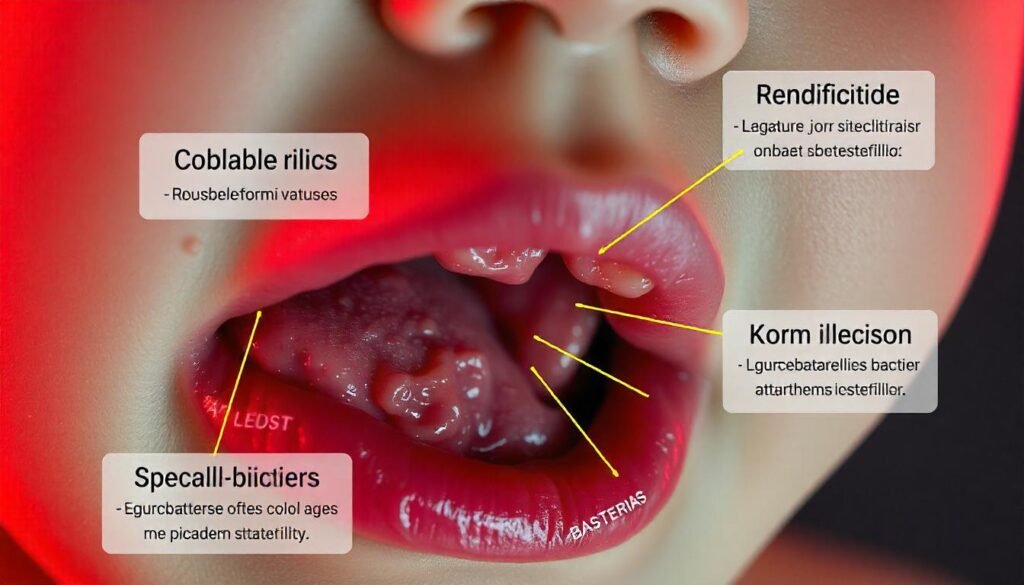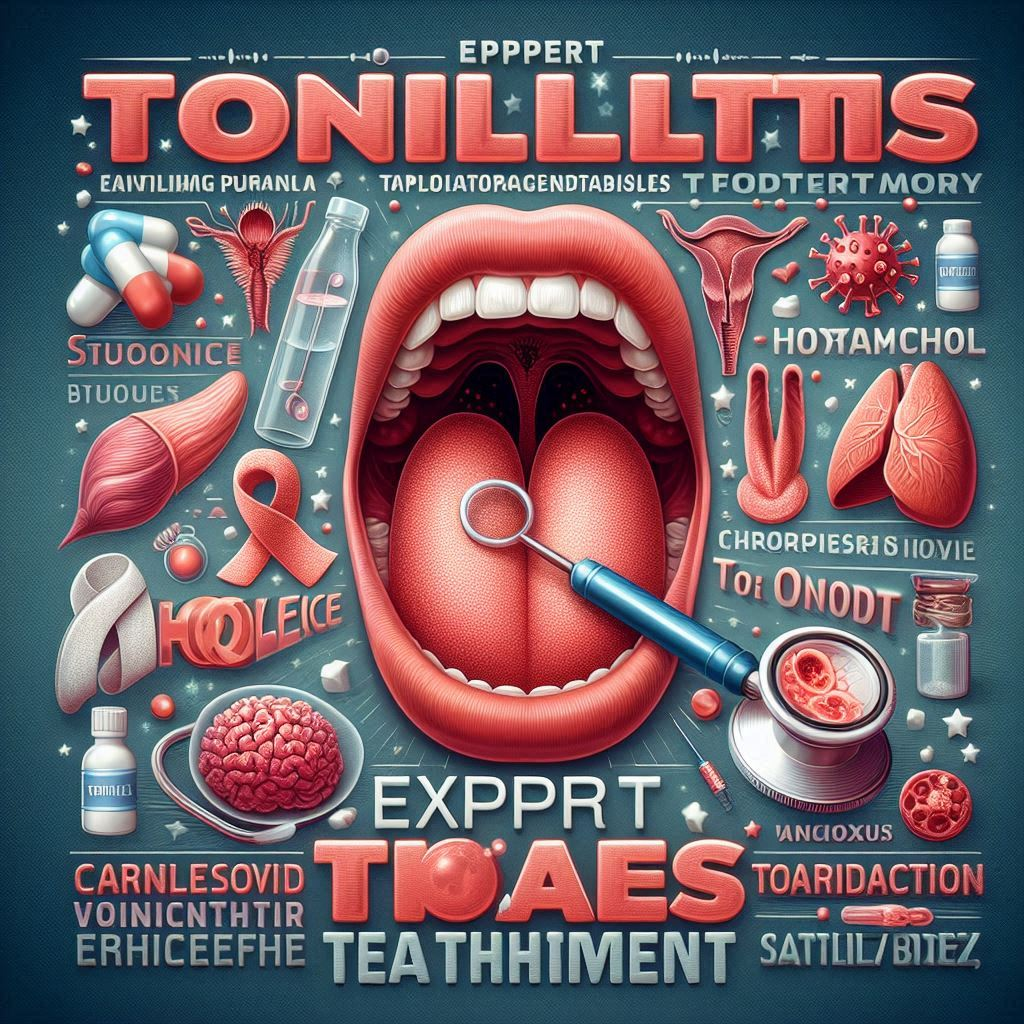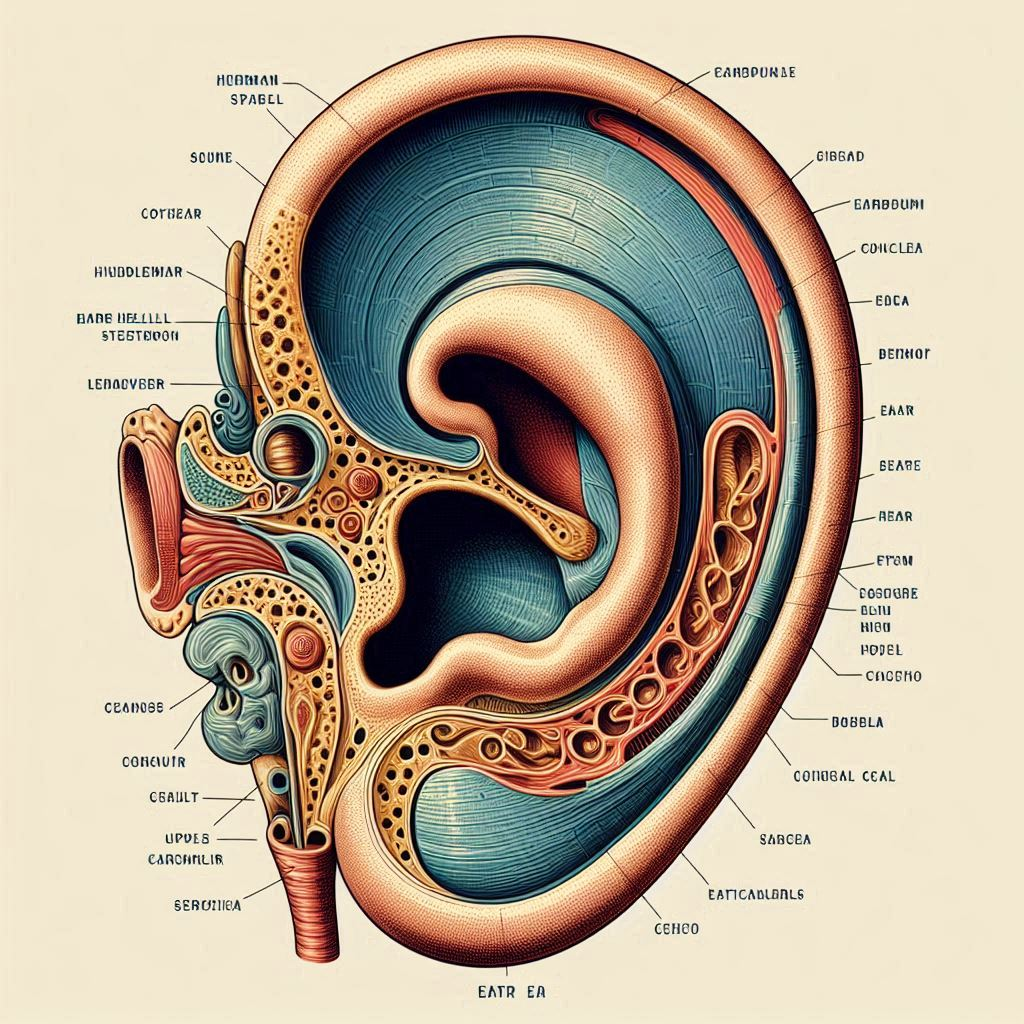
“7 Critical Facts About Tonsillitis”
“7 Critical Facts About Tonsillitis”
“Discover 7 critical facts about tonsillitis, including its causes, symptoms, treatments, and prevention. Learn how to manage and prevent this common throat infection.”


Introduction
Brief Overview of Tonsillitis
Tonsillitis is an inflammation of the tonsils, which are two lymph nodes located at the back of the throat. This condition is commonly caused by viral or bacterial infections and can affect individuals of all ages, though it is most prevalent in children. Tonsillitis can lead to symptoms such as a sore throat, difficulty swallowing, and swollen tonsils.
Importance of Understanding Tonsillitis
Understanding tonsillitis is crucial for effective management and prevention. Recognizing the symptoms and knowing the causes can help in seeking timely medical attention and reducing the risk of complications. Additionally, being informed about treatment options and preventive measures can improve overall health and well-being.
Fact 1: Causes of Tonsillitis
Explanation of Viral and Bacterial Causes
Tonsillitis can be caused by both viral and bacterial infections. Viral tonsillitis is often caused by common viruses such as the adenovirus, influenza virus, and Epstein-Barr virus. Bacterial tonsillitis is most commonly caused by Streptococcus pyogenes, the bacterium responsible for strep throat.
Common Pathogens Responsible for Tonsillitis
Here are some common pathogens that can cause tonsillitis:
- Viruses: Adenovirus, influenza virus, Epstein-Barr virus, enteroviruses, and herpes simplex virus.
- Bacteria: Streptococcus pyogenes (Group A streptococcus), Streptococcus pneumoniae, and Haemophilus influenzae.
Fact 2: Symptoms of Tonsillitis
Common Symptoms Such as Sore Throat, Fever, and Swollen Tonsils
Tonsillitis presents with a range of symptoms, including:
- Sore Throat: A persistent sore throat is one of the most common symptoms of tonsillitis.
- Fever: Elevated body temperature often accompanies tonsillitis.
- Swollen Tonsils: The tonsils may become red, swollen, and covered with white or yellow patches.
- Difficulty Swallowing: Pain and discomfort while swallowing are common.
- Swollen Lymph Nodes: Lymph nodes in the neck may become tender and swollen.
- Bad Breath: Halitosis can occur due to the infection.
Differences Between Acute and Chronic Tonsillitis
- Acute Tonsillitis: This form of tonsillitis occurs suddenly and typically resolves within a week or two with appropriate treatment. It is often caused by viral or bacterial infections.
- Chronic Tonsillitis: Chronic tonsillitis involves recurrent episodes of tonsillitis over a prolonged period. It may require more intensive treatment, such as surgery, to remove the tonsils (tonsillectomy).
Fact 3: Diagnosis of Tonsillitis
How is Tonsillitis Diagnosed?
Tonsillitis is diagnosed through a combination of methods to accurately identify the cause and determine the appropriate treatment. These methods include:
- Physical Examination: A healthcare professional will examine the throat, looking for signs of inflammation, redness, and swelling of the tonsils. They may also check for white or yellow patches on the tonsils and swollen lymph nodes in the neck.
- Throat Swab: A throat swab is taken to collect a sample of the secretions from the tonsils and throat. This sample is then tested for the presence of bacteria, such as Streptococcus pyogenes, which can cause strep throat.
- Blood Tests: In some cases, blood tests may be performed to check for signs of infection and to identify the specific pathogen causing the tonsillitis. Blood tests can also help rule out other conditions that may present with similar symptoms.
Fact 4: Treatment Options for Tonsillitis
What are the Treatment Options for Tonsillitis?
Treatment options for tonsillitis vary depending on whether the infection is viral or bacterial and the severity of the symptoms. Common treatment methods include:
- Rest and Hydration: Ensuring adequate rest and staying hydrated are essential for recovery. Drinking plenty of fluids helps soothe the throat and prevent dehydration.
- Pain Relievers: Over-the-counter pain relievers such as ibuprofen or acetaminophen can help reduce pain and fever associated with tonsillitis.
- Throat Lozenges: Throat lozenges or sprays can provide temporary relief from sore throat and discomfort.
- Antibiotics: If tonsillitis is caused by a bacterial infection, such as strep throat, antibiotics may be prescribed to eliminate the bacteria. It is important to complete the full course of antibiotics as prescribed by the healthcare provider.
Fact 5: Complications of Tonsillitis
Can Tonsillitis Cause Complications?
Yes, untreated tonsillitis can lead to several complications, some of which can be serious. Potential complications include:
- Abscesses: Pus-filled pockets, known as peritonsillar abscesses, can form around the tonsils, causing severe pain and swelling.
- Rheumatic Fever: A rare but serious complication that can occur if a strep throat infection is not treated properly. Rheumatic fever can affect the heart, joints, and nervous system.
- Kidney Inflammation: Known as post-streptococcal glomerulonephritis, this condition can occur after a strep throat infection and can lead to kidney damage.

Fact 6: Tonsillitis in Children
Why Tonsillitis is More Common in Children
Tonsillitis is more common in children because their immune systems are still developing, making them more susceptible to infections. The tonsils, which are part of the immune system, are more active in young children as they help fight off infections. As a result, children are more likely to experience inflammation and infection of the tonsils.

Special Considerations for Treating Tonsillitis in Young Patients
When treating tonsillitis in children, it is important to consider their age, overall health, and the severity of the infection. Here are some special considerations:
- Hydration: Ensure that the child stays well-hydrated by offering plenty of fluids, such as water, herbal teas, and clear broths.
- Pain Relief: Use age-appropriate pain relievers, such as acetaminophen or ibuprofen, to manage pain and reduce fever. Always follow the dosage instructions provided by a healthcare professional.
- Rest: Encourage the child to rest and avoid strenuous activities to help their body recover.
- Soft Foods: Offer soft, easy-to-swallow foods, such as yogurt, applesauce, and mashed potatoes, to reduce discomfort while eating.
- Medical Attention: Seek medical attention if the child’s symptoms are severe, persistent, or accompanied by difficulty breathing or swallowing.
Fact 7: Preventing Tonsillitis
Tips for Preventing Tonsillitis, Including Good Hygiene Practices
Preventing tonsillitis involves practicing good hygiene and maintaining a healthy lifestyle. Here are some tips to help prevent tonsillitis:
- Hand Washing: Encourage regular hand washing with soap and water, especially before eating and after using the restroom.
- Avoid Close Contact: Avoid close contact with individuals who have respiratory infections or symptoms of tonsillitis.
- Cover Mouth and Nose: Teach children to cover their mouth and nose with a tissue or their elbow when coughing or sneezing to prevent the spread of germs.
- Avoid Sharing Utensils: Do not share eating utensils, drinking glasses, or personal items with others to reduce the risk of infection.
- Clean Surfaces: Regularly clean and disinfect frequently-touched surfaces, such as doorknobs, light switches, and toys.
Importance of a Healthy Immune System
A healthy immune system is essential for preventing infections, including tonsillitis. Here are some ways to support a healthy immune system:
- Balanced Diet: Ensure a balanced diet rich in fruits, vegetables, whole grains, lean proteins, and healthy fats to provide essential nutrients.
- Regular Exercise: Encourage regular physical activity to boost overall health and immune function.
- Adequate Sleep: Ensure that children get enough sleep to support their immune system and overall well-being.
- Hydration: Keep the body well-hydrated by drinking plenty of water throughout the day.
- Stress Management: Teach children stress management techniques, such as deep breathing and relaxation exercises, to reduce the impact of stress on the immune system.
Conclusion
Recap of the Critical Facts About Tonsillitis
Tonsillitis is a common condition that can affect individuals of all ages, particularly children. Understanding the causes, symptoms, and treatment options for tonsillitis is crucial for effective management and prevention. Key facts include:
- Tonsillitis can be caused by viral or bacterial infections.
- Common symptoms include a sore throat, fever, and swollen tonsils.
- Diagnosis involves a physical examination, throat swab, and sometimes blood tests.
- Treatment options include rest, hydration, pain relievers, throat lozenges, and antibiotics for bacterial infections.
- Untreated tonsillitis can lead to complications such as abscesses, rheumatic fever, and kidney inflammation.
- Tonsillitis is more common in children due to their developing immune systems.
- Preventing tonsillitis involves good hygiene practices and maintaining a healthy immune system.
Encouragement to Seek Medical Advice if Symptoms Persist
If you or your child experience symptoms of tonsillitis that persist or worsen, it is important to seek medical advice. Early diagnosis and appropriate treatment can help manage the condition effectively and prevent complications. Remember to follow the recommended tips for preventing tonsillitis and maintaining overall health.
FAQs
- What causes tonsillitis?
- Tonsillitis can be caused by viral or bacterial infections, with common pathogens including Streptococcus bacteria and various viruses.
- What are the symptoms of tonsillitis?
- Symptoms include a sore throat, fever, swollen tonsils, difficulty swallowing, and swollen lymph nodes.
- How is tonsillitis diagnosed?
- Tonsillitis is diagnosed through a physical examination, throat swab, and sometimes blood tests to identify the causative agent.
- What are the treatment options for tonsillitis?
- Treatment options include rest, hydration, pain relievers, throat lozenges, and antibiotics for bacterial infections.
- Can tonsillitis cause complications?
- Yes, untreated tonsillitis can lead to complications such as abscesses, rheumatic fever, and kidney inflammation.
- Why is tonsillitis more common in children?
- Children’s immune systems are still developing, making them more susceptible to infections like tonsillitis.
- How can I prevent tonsillitis?
- Prevent tonsillitis by practicing good hygiene, avoiding close contact with infected individuals, and maintaining a healthy immune system.
- Is tonsillitis contagious?
- Yes, tonsillitis can be contagious, especially if caused by a bacterial or viral infection.
- When should I see a doctor for tonsillitis?
- See a doctor if you have severe symptoms, symptoms lasting more than a few days, or difficulty breathing or swallowing.
- Can tonsillitis be chronic?
- Yes, chronic tonsillitis involves recurrent episodes and may require more intensive treatment or surgery.



